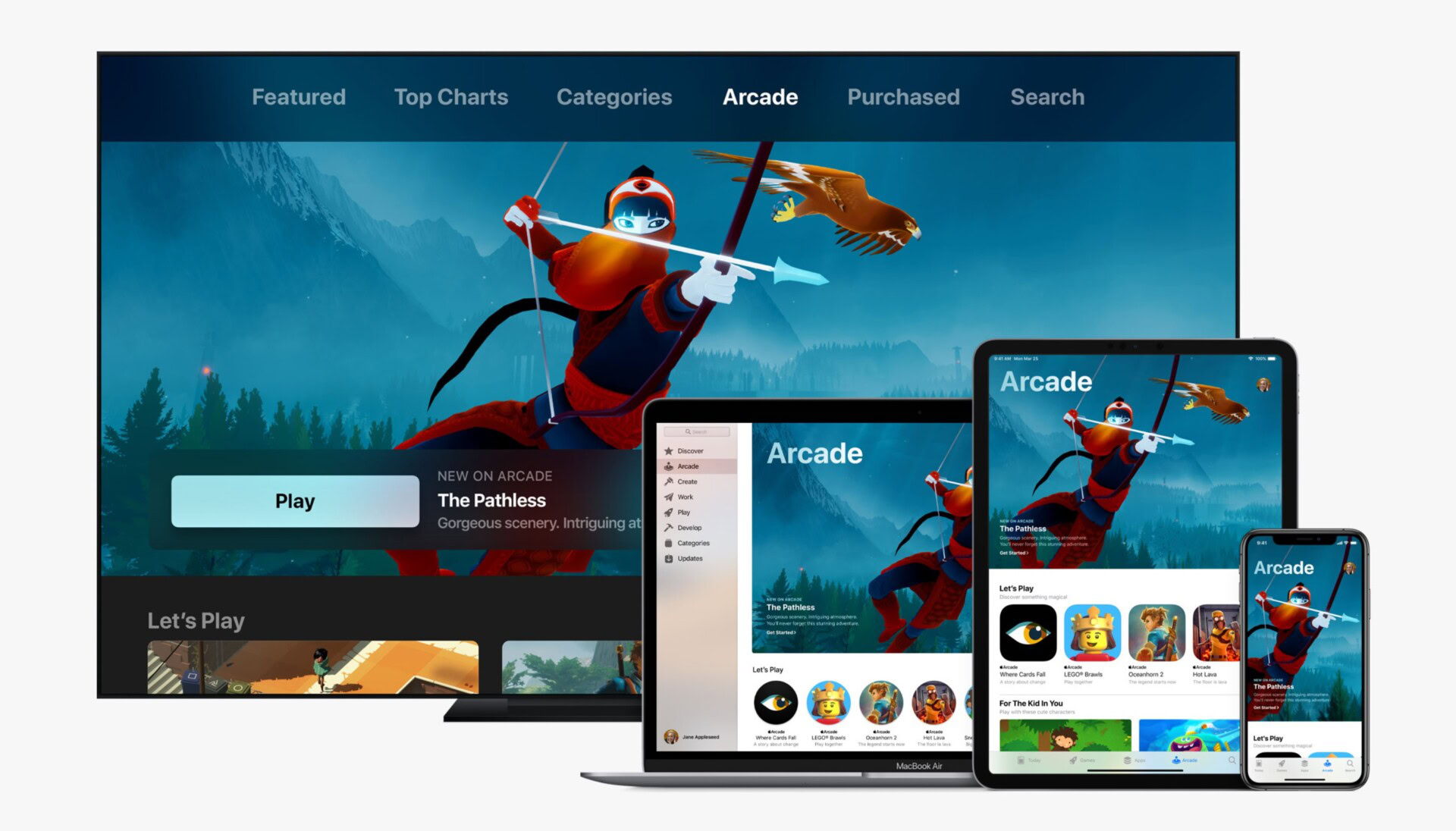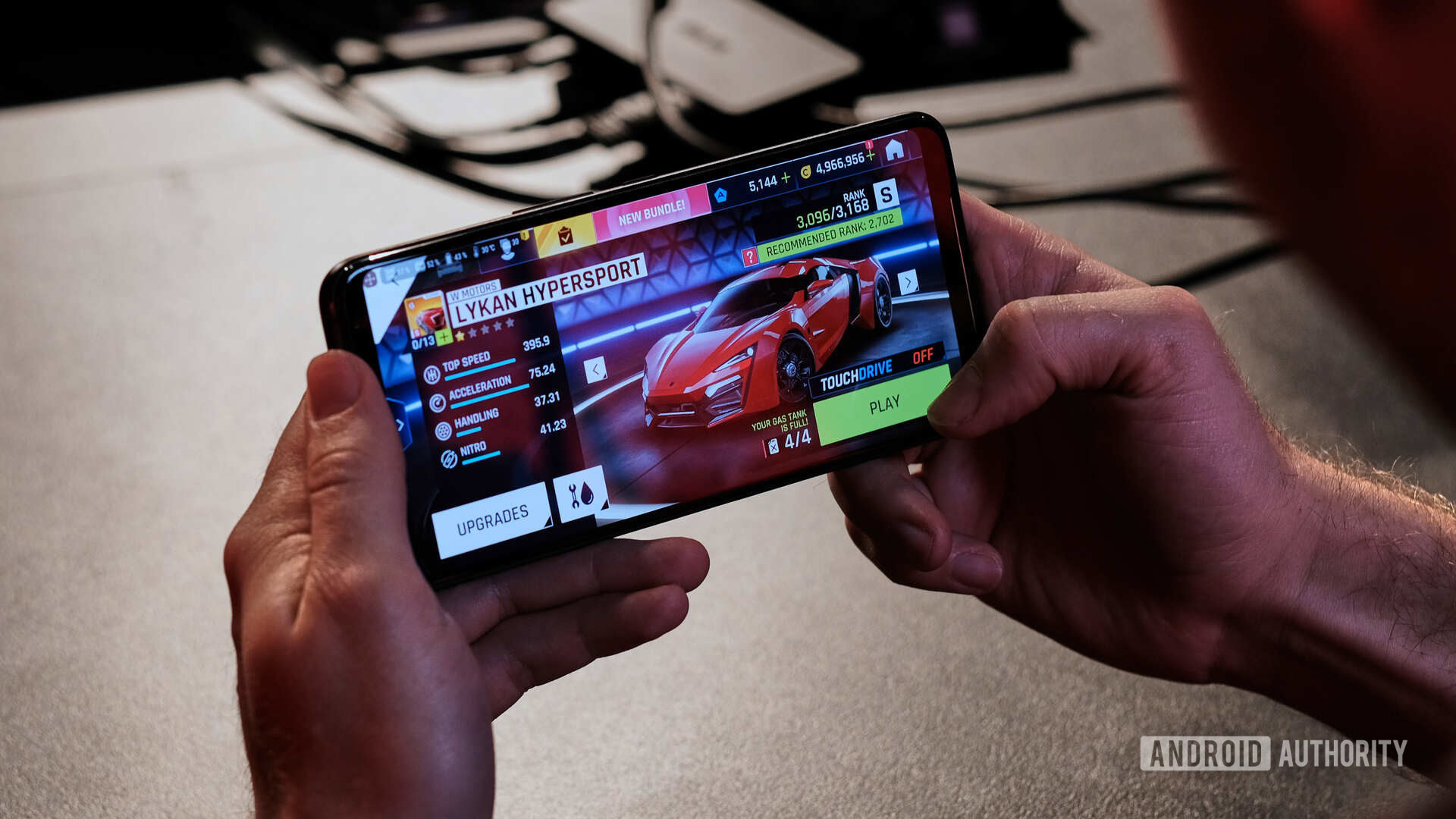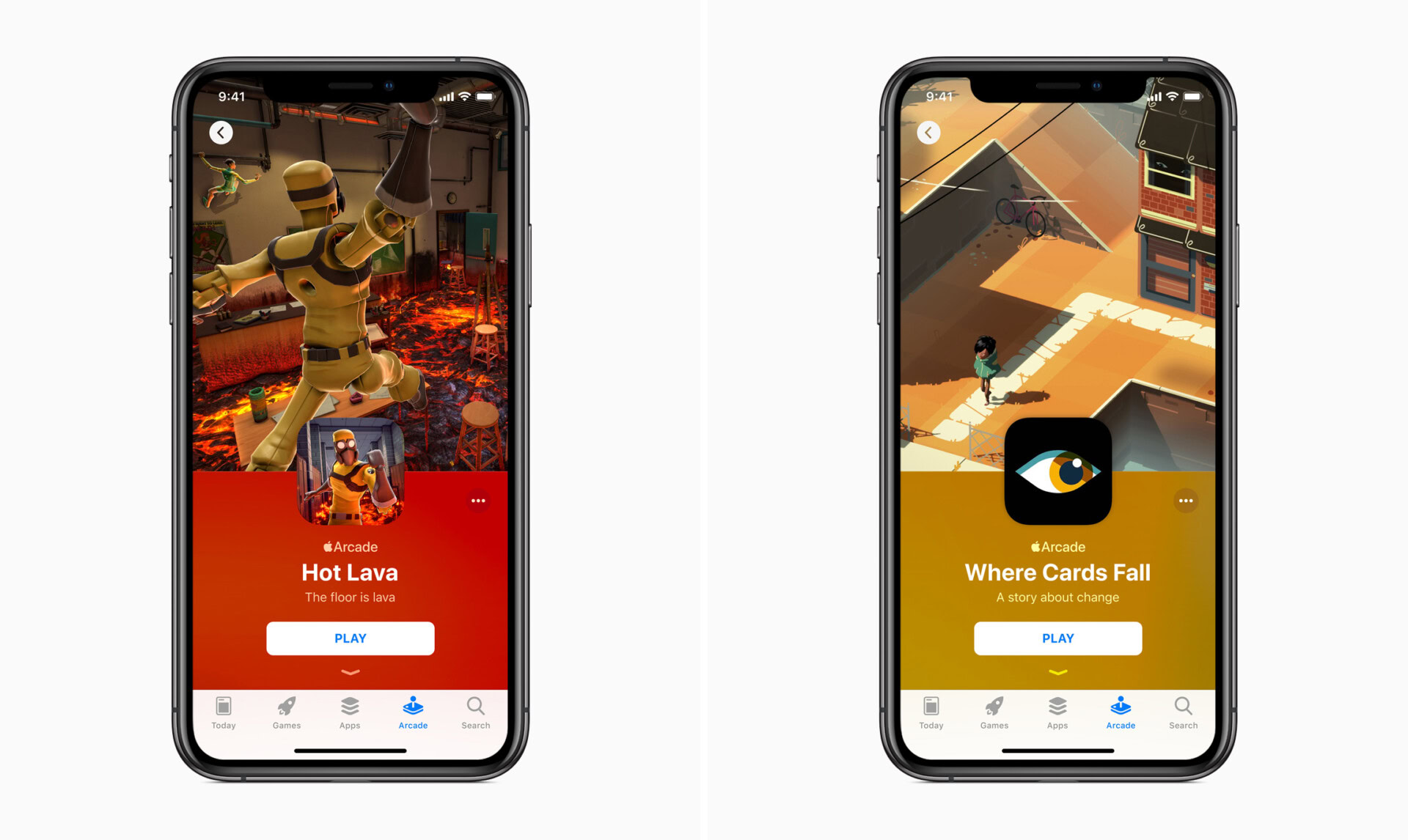Affiliate links on Android Authority may earn us a commission. Learn more.
Apple Arcade: Is it bad news for Android?

Apple unveiled a new games platform last week, Apple Arcade, set to launch this Autumn. The subscription service will offer new and exclusive titles from industry veterans and indie developers alike, all of which will be playable across multiple Apple platforms, without download restrictions.
One of the most attractive assets is that none of these titles will feature ads, ad-tracking, or in-app or purchases.

Similar video game subscription services exist, like Microsoft’s Xbox Game Pass, but what Apple proposes is unprecedented in the mobile scene.
Currently, mobile gamers have access to tens of thousands of games through via hubs like the App Store and Google Play, the majority of which are free. However, these are subject to little in the way of quality control, which means the stores are overrun with low-quality content.
At launch, Apple Arcade will offer 100 premium, hand-selected games, which you can start playing on your laptop and continue later on your smartphone. It’s hot news for Apple fans, but will it give the Android gaming crowd something to worry about? Let’s investigate.
1. It’s exclusive to Apple devices
Most companies want their subscriptions services to be compatible with as many devices as possible to increase adoption rate: you’ll be hard-pressed to find platform that doesn’t support something like Spotify or Netflix. The first bad news for Android users is that Apple Arcade is tied to Apple devices running iOS, macOS, and tvOS.
With the Android crowd being shut out from Arcade, we could see some users move away from Android to sample the delights of Apple’s latest entertainment service, weakening Google’s mobile games authority.

2. Apple may nab Android devs
We don’t yet know what kinds of rates Apple offers developers who create Arcade titles, but not having to worry about app pricing or in-app payments could be a huge boon for game makers; Apple Arcade may be an attractive prospect for developers who might otherwise pour their efforts into Android games.
Apple Arcade may be an attractive prospect for devs who might otherwise pour their efforts into Android games.
Oceanhorn is a popular mobile game available on Google Play, but Apple has confirmed the upcoming sequel, Oceanhorn 2: Knights of the Lost Realm, will be an Arcade launch title. Android fans could be saying goodbye to future Oceanhorn titles if Apple Arcade proves far more lucrative than the Play Store ever did.
Of course, Apple Arcade will by all accounts have a far smaller pool of titles, and they won’t all be exclusives. Still, a less crowded, potentially less uncertain space may be a very appealing prospect for devs — and Apple is even contributing towards development costs for some titles.
3. User privacy focus
It’s a weird selling point — we didn’t quite have this fear in the SNES era — but Apple is touting a commitment to user privacy with Arcade games.
Despite the vows Apple made in its press release, we don’t know exactly what measures are being taken to ensure this privacy; however, it’s not hard to imagine the smaller, curated nature of the platform will lend itself better to privacy and security than something like Google Play.
Apple Arcade is shaping up to be an altogether safer, more homely place for gamers.
Google does a comparatively excellent job of protecting Android users given the volume of apps that appear in the Play Store, but privacy and security issues do crop up from time to time.
Google Play is also rife with video game clones and re-skins, which Apple Arcade would avoid completely. All told, Arcade is shaping up to be an altogether safer, more homely place for gamers.

4. Curation benefits
One of the chief complaints about platforms like Google Play, the App Store, Steam, and YouTube is the amount of trash that creeps on there. The open nature of these services means anybody has a shot at success with great content, but it also means there’s more sludge to wade through to find the gems.

All of these platforms make efforts to highlight the “good” content, but the abundance of mediocre content can make them somewhat forbidding. Having a smaller pool of stronger content may give Apple’s service a key advantage over competitors.
5. Better games
Possibly the biggest worry for Android fans is that Apple may simply become the home of better games. It’s a tired complaint, but adverts and gameplay specifically designed to gouge money out of you remain prevalent, unwanted aspects of many mobile titles.
You might expect the dearth of these features in Apple Arcade will just spur Android devs on to trying the same with their own games — but this won’t be the case.
Apple may simply become the home of better games.
It’s in the nature of the Play Store that freemium games stand to make more money than premium games. Since Google doesn’t have a similar subscription service for devs to take advantage of, they may be more inclined to double down on what Apple Arcade lacks: free titles — complete with horrible monetization methods.

None of this is to say Apple’s platform is guaranteed to be a hit. People don’t like paying for mobile games now — it’s estimated that the average iPhone owner in the U.S. spent $44 on mobile games in 2018. We don’t how much the subscription will cost, but I’d guess it will set you back more than the $3.66 per month consumers are spending on average right now (though, if it’s less, Apple would certainly be on to something special). Google also has an upcoming subscription service in Google Stadia, which could stave off a serious gaming threat from Apple or anybody else.
Regardless, Apple Arcade probably won’t become a serious threat to Android — not unless if it delivers an experience that has every gamer and game dev clamoring to be a part of it. It might give Google something to think about though, and if that something results in higher-quality Android games arriving somewhere down the line (through whatever means), that would be fine by me.
What are your thoughts on Apple Arcade and its implications for Android? Let me know in the comments.
Read next: Why Google Stadia could be game on for Chrome OS tablets